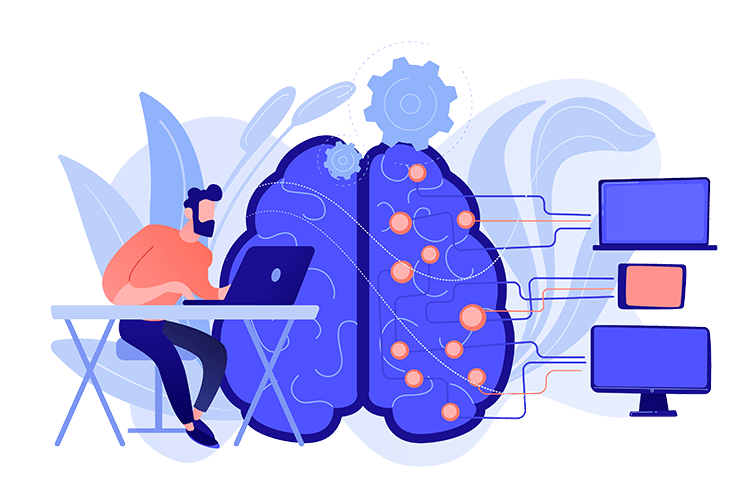Amdrodd | Salesforce Consulting
Artificial Intelligence (AI) has moved far beyond being a futuristic concept—it’s now a driving force at the heart of modern healthcare. From hospitals and clinics to research labs, AI is helping medical professionals deliver smarter, faster, and more personalized care. With advanced algorithms, real-time analytics, and data-driven insights, this technology is reshaping patient outcomes while easing the load on clinicians and health systems.

A New Era of Diagnosis
Medical diagnosis has always been one of healthcare’s most critical challenges. Today, AI-powered diagnostic tools are raising the bar for accuracy and speed. Advanced imaging models can now analyze X-rays, MRIs, and CT scans in record time, sometimes outperforming even top specialists. For instance, AI systems are detecting early signs of lung nodules with an accuracy rate of over 90%—a game-changer in the fight against cancer.
Beyond imaging, AI analyzes vast patient datasets to identify patterns invisible to the human eye. This allows doctors to catch early warnings of diseases like diabetes, heart disease, or cancer, often before symptoms appear. The result? Earlier interventions, better survival rates, and improved patient confidence.
Personalized Treatment for Every Patient
The one-size-fits-all approach to medicine is quickly becoming a thing of the past. AI enables highly personalized treatment by processing genetic data, lifestyle habits, and medical histories to recommend tailored therapies.
In cancer care, for example, AI platforms suggest treatment plans targeting specific genetic mutations, aligning closely with expert recommendations. This level of precision not only reduces side effects but also improves outcomes—empowering patients to feel more in control of their healthcare journey.
Prevention and Monitoring at the Frontlines
AI is making healthcare proactive rather than reactive. Predictive analytics allow doctors to foresee health risks and intervene before conditions escalate. Hospitals use these tools to manage resources more effectively—forecasting patient surges, preventing overcrowding, and optimizing bed allocations.
At the same time, AI-enabled wearables and mobile apps are transforming how patients monitor their health daily. From detecting irregular heart rhythms to tracking blood sugar levels, these devices send real-time alerts that can prevent emergencies before they happen.
Smarter Workflows, Reduced Burnout
Healthcare is not just about treating patients—it’s also about managing countless administrative tasks. AI is stepping in to automate appointment scheduling, billing, documentation, and lab management. By reducing paperwork and minimizing human error, doctors and nurses gain more time to do what they do best: care for patients. This balance helps cut down burnout rates and improves overall satisfaction for both medical staff and patients.
Accelerating Drug Discovery
The pharmaceutical world is also reaping the rewards of AI. Traditional drug development is a long and expensive process, but AI is dramatically cutting timelines. By analyzing millions of compounds, predicting drug interactions, and refining clinical trial designs, AI helps researchers bring life-saving medications to market faster than ever before.
Challenges That Still Remain
While AI’s potential is extraordinary, the road ahead isn’t without obstacles. Integrating new technologies with outdated hospital systems remains complex. Data privacy concerns, algorithmic biases, and the need for regulatory frameworks are critical issues that must be addressed.
It’s important to remember: AI is not here to replace doctors. Instead, it enhances their skills—allowing healthcare professionals to focus on the human side of medicine: compassion, connection, and patient care.
Real-World Innovation: Amdrodd’s Expertise
At Amdrodd, we’ve seen firsthand how AI can be applied to solve pressing healthcare challenges. Recently, we built an AI-powered care planning agent on Salesforce Health Cloud for a leading US-based healthcare provider.
This intelligent agent leverages unified patient records and real-time medication data to:
Identify care gaps
Flag potential drug interactions
Personalize treatment plans in line with best practices
The outcome? Smarter decision-making, streamlined coordination, and improved patient outcomes—demonstrating how AI can bring real value to providers and patients alike.
The Future of Healthcare
AI in healthcare isn’t just another technological upgrade—it’s a fundamental shift. From accurate diagnosis and tailored treatments to proactive prevention and seamless workflows, AI is laying the foundation for a healthier, more efficient future.
As intelligent systems continue to evolve, their greatest impact will come from working hand in hand with humans—helping doctors and caregivers focus on what matters most: healing, empathy, and brighter patient outcomes.